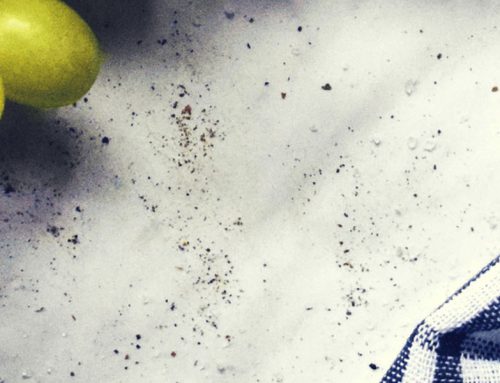Stone Kitchen Countertops: How to Clean Them – Part 1
The variety of natural stone options for your kitchen countertops these days is huge: concrete, granite, marble, limestone, quartz and soapstone to name just a few. But, just as we are all individuals sporting our own unique personalities, so do the different types of stone.
So when it comes to cleaning stone countertops in your kitchen, the material you chose to use will also sport it’s own distinct personality when it comes to durability and care.
Not to worry though, it’s easy enough to know how to clean what – especially when we’re around! In this two part blog series we’re going to show you how to clean six different types of stone. But first, here are some general guidelines that apply to all types of stone countertops…
General Stone Cleaning & Care Tips:
- If exposed to extreme heat, stone countertops may crack due to thermal shock. Always protect your stone benches from direct contact with hot pots, pans, and dishes of food. The best solution is to use trivets that allow airflow under the hot item. This is especially important when using a slow cooker, which exposes the kitchen countertop to heat for several hours.
- Don’t stand or sit on stone countertops, ever. Even the smallest of fissures in the stone can cause cracks if it is subjected to excessive weight. If you need to get up high, use a stepping stool.
- Wipe up spills immediately. You will find that most stone is sensitive to acidic foods (think wine, citrus juices, vinegars, and salad dressings). Yes, your stone countertop may be sealed, but it can still be etched by strong acids or harsh chemicals like chlorine bleach or ammonia.
- Always use a cutting board. Your stone counter is at risk of permanent scratches if you chop or slice directly on it.
- Sealants don’t last forever. Normal wear and tear gradually removes the finish. The frequency of resealing depends on the type, quality and colour of the stone. It’s important to refer to your manufacturers instructions. As a general rule: light colored stone may need to be resealed every one to three years, darker colored stone every three to five years.
How to Clean Concrete Countertops:
Concrete is a mixture of finely crushed stone, sand, cement, and water. For ease of care with this kitchen bench option, it is important to ensure it is correctly sealed. The sealant needs to be acid, heat and scratch-resistant. Make sure you’re aware of how often the sealant needs to be reapplied.
Daily Cleaning of Concrete Kitchen Benches
- Acid is concrete’s enemy. Never use harsh, abrasive cleaners or scrubbing pads, and most definitely avoid white vinegar as a cleaner. A simple mix of one teaspoon dish detergent in four cups of water, kept in a spray bottle, is ideal for daily cleaning. Always wipe the counters after cooking or food preparation.
- Mineral deposits can cause problems for concrete over time. If you have hard water at home it is worth considering adding a water softening system or a water conditioner to your cleaning water.
Stain Removal from Concrete Kitchen Benches
- Strong acids like lemon juice can leave stains that are actually spots where the concrete has become etched as the acid dissolved the cement and left carbonate deposits. Removal of acid stains on concrete can only happen through buffing or grinding away the damage and resealing the concrete. It’s best to hire a professional if this is required, which is something that we at Distinctive Stone can do.
- Chlorine bleach is usually able to remove discoloration stains from foods like coffee or mustard. Simply dip a cotton ball or white paper towel in the bleach and apply directly to the stain. Weigh this down with a heavy item and allow the bleach to work for five to ten minutes. Rinse the concrete well with plain, cool water. Never leave the bleach on the stain for more than ten minutes as you may cause damage to the sealant.
- If oil stained your concrete – usually by penetrating the sealant – you will need to use both a solvent and something to absorb the oil. Follow this tip from The Spruce to clean the oil stains: A good homemade cleaner for concrete oil stains is to mix baking soda and acetone (fingernail polish remover) to form a thick paste the consistency of peanut butter. Spread the mixture about one-fourth inch thick over the stain and cover with plastic wrap. Tape down the edges of the plastic wrap to hold it in place. Allow the mixture to remain on the stain for 24 hours. Remove the plastic wrap and allow the mixture to dry completely, then wipe away. Repeat as needed to draw out all of the oil. Once this is done the concrete will need to be resealed to prevent further staining.
How to Clean Granite Countertops:
Granite’s variety in colour and patterning means that many people choose to use it for their kitchen countertops. Granite is naturally antibacterial, and with the right sealant on it it can be very easy to care for.
- Daily cleaning of granite using a mix of dishwashing liquid and water at a ratio of 1:4, kept in a spray bottle for everyday use, will keep granite countertops shiny. Give your granite benches a quick spray and wipe with a soft cloth after food preparation and allow to air dry.
- Harsh cleaners such as vinegar, lemon juice of foaming bathroom cleaners can dull the finish of granite. Do not use them.
- Prevent scratches from sharp or gritty objects by always using a cutting board and trivets. Reseal granite countertops as recommended by your installer’s guidelines.
Stain Removal from Granite Kitchen Benches
- It is possible to clean tough stains such as red wine or beetroot juice. You can use a commercial stone poultice or create your own by mixing baking soda and hydrogen peroxide to form a thick paste the consistency of peanut butter. Then follow this method from The Spruce: Spread the mixture about one-fourth inch thick over the stain and cover with plastic wrap. Tape down the edges of the plastic wrap to hold it in place. Allow the mixture to remain on the stain for 24 hours. Remove the plastic wrap and allow the mixture to dry completely, then wipe away. Repeat as needed until the stain is gone. Keep in mind that after cleaning, resealing of the stained area will still be needed to prevent further staining.
How to Clean Quartz Countertops:
Quartz countertops are actually engineered stone that is formed by combining randomly sized quartz crystals with resins and coloured pigment to form a slab. The resulting slab is 93% quartz and 7% resin. A benefit of this is that the surface is nonporous and doesn’t require sealing or resealing. However, the quartz is highly susceptible to fading when exposed to harsh, direct sunlight over long periods of time.
Daily Cleaning of Quartz Kitchen Benches
- Quartz is not affected by acidic food and does not scratch easily. Glass cleaner or any non-abrasive household cleaner can be used on a daily basis, however, it is good to stay away from using abrasive, scouring pads.
- Avoid placing hot items directly onto your quartz countertop as it can mar the resin. Use wooden boards and trivets to prevent potential damage.
Stain Removal from Quartz Kitchen Benches
- Luckily very little stains quartz. If you do find that something such as dried paint or nail polish ends up on your countertop, simply use a plastic putty knife to remove it. Permanent ink is the only exception to the rule: it’s difficult to remove, so protect your quartz surface when using Sharpies.






